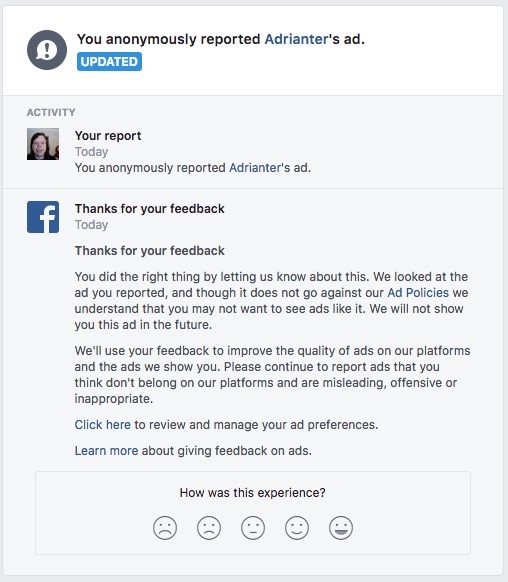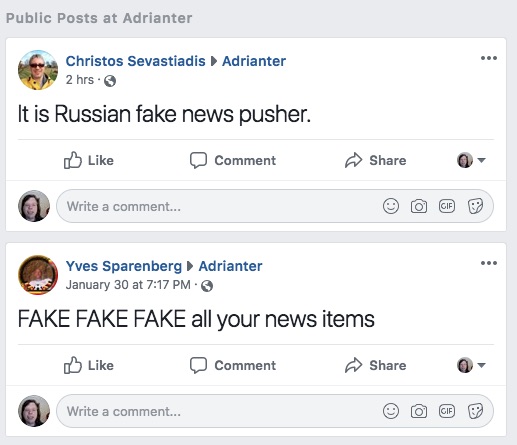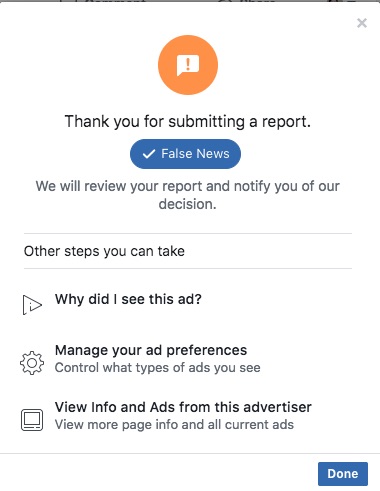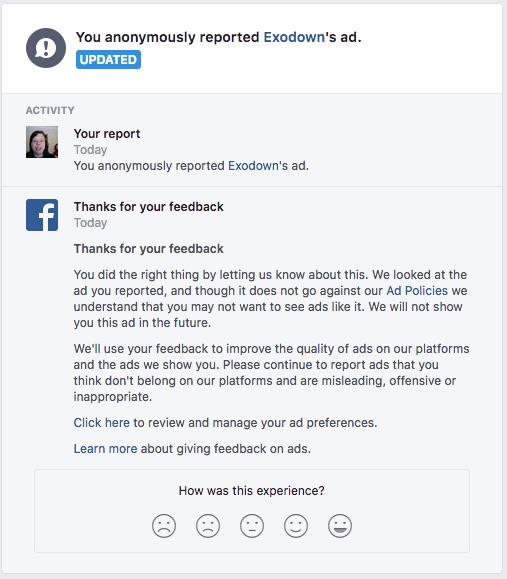; Date: Fri Feb 01 2019
Tags: Fake News »»»» Fake Advertising »»»» Facebook »»»»
Fake news, and fake advertising, is plaguing us. How can we know the truth when we're surrounded by so many fake claims. The President of the USA is making decisions about the USA based on false news, his "gut hunches" that are plainly wrong. Facebook has been under fire for being a big avenue for being a major conduit for distributing fake news. Russia, and others, have set up an infrastructure to create and distribute fake news items, sometimes paying for advertising to help goose their distribution. Facebook claims to be addressing the problem, and has created a way to report postings containing fake information. In this case today Facebook refused to take action on an advertisement that is outright false, posted by a Facebook Page that is likely a Russian Fake News outlet.

Scrolling through my Facebook news feed today, I came across a sponsored posting where the Title said that Sweden was the first country to pull out of the Euro. Other text in the advert described that as ground-breaking history that we should all pay attention to.
Thinking - oh-my-gosh this is BIG, I jumped onto Google News entering "Sweden ditch Euro" as the search term, and came up with a big fat nothing. There was talk a few months ago about Swexit, a Swedish exit from the European Union, but nothing about exiting from the Eurozone. Hurm.
Then I read the comments under the posting, all of which talked about this being fake news. The primary evidence that it was fake is something I already knew! Sweden does not use the Euro!!! I knew this, having traveled to Sweden once, but had forgotten. Sweden uses the Krona, instead.
HOW CAN SWEDEN DITCH THE EURO IF IT DOES NOT USE THE EURO?
Is someone hoping to sow fake information and create confusion? Some of the comments under the posting claimed the article was promoting a cryptocurrency scheme, but as I did not click through to the article I do not know this for certain.
Given that Facebook now has mechanisms to report Fake News, I quickly reported this advertisement. (in the upper-right-corner of every Facebook posting is a drop-down menu with several choices, including Report) Feeling like a Good Citizen, I went on my way only to receive notification later on of the following decision:

This is Facebook failing to enforce rules against fake advertising that is patently fake.
Going by this evidence we have to ask: Is Facebook's efforts to eliminate Fake News all a sham?
FACEBOOK PLEASE LISTEN ... it's not that I did not want to see that advertisement. It's that the advertisement was making outright false claims, and that it was EASY to verify the claims were false.
As we'll see in a second, digging further it seems plausible the page running the advertisement is a Russian Fake News page.

This is the actual advertisement.
It seems that for every Facebook Page, there is a choice labeled "Info and Ads" allowing one to browse the active advertisements from this page.
Sure enough, the advertisement was there in all its glory.
The rest of the Adrianter page was a few random postings with text in Cyrillic and an indication that maybe the page is related to Bulgaria. Rather, that the page owner used some stock images from Bulgaria. Maybe the page is owned by a Russian instead?

















